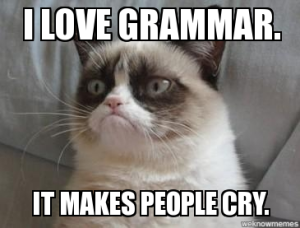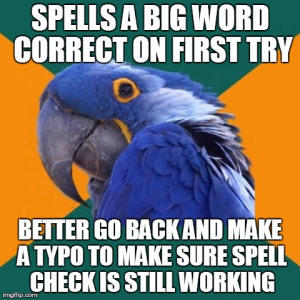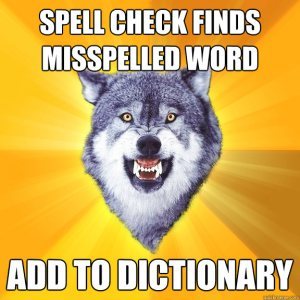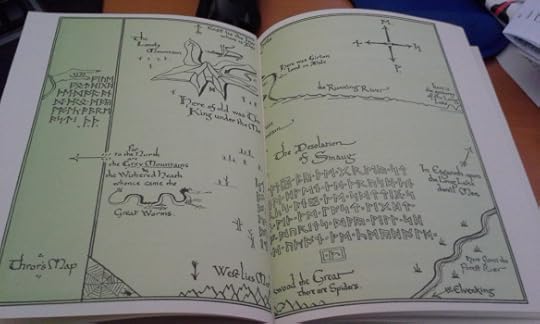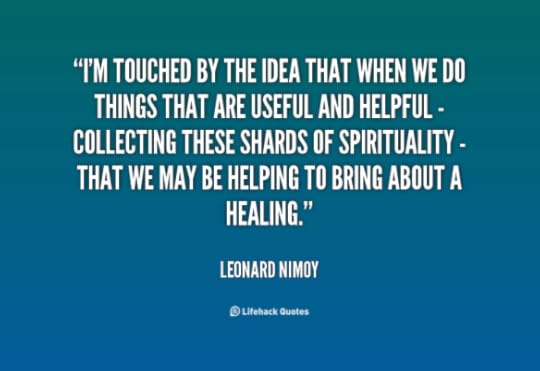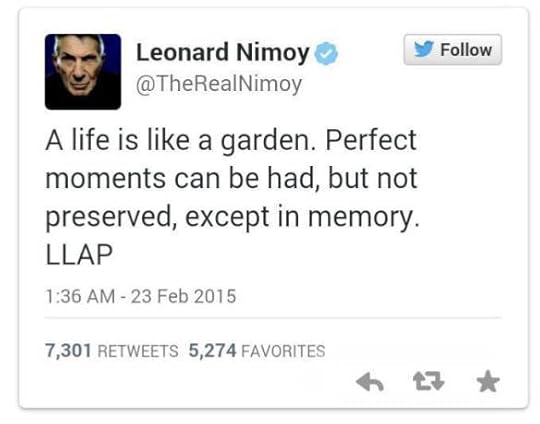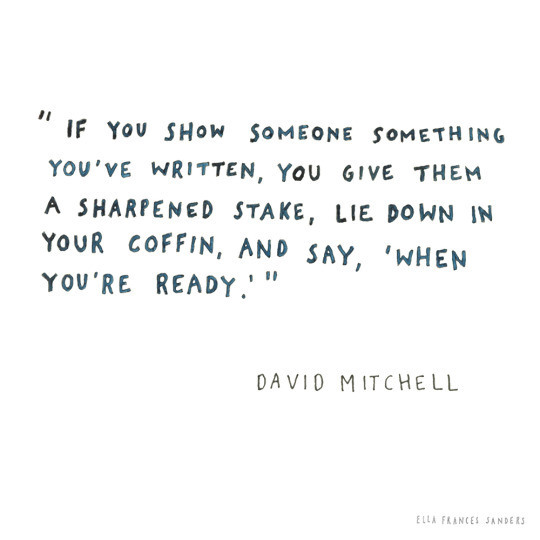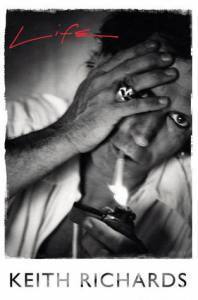Maria Haskins's Blog, page 63
March 11, 2015
Me and my book at Amazon (and elsewhere)
Yes, it is happening! After wrestling with spell-check and formatting yesterday, my author page is now live at Amazon: Maria Haskins at Amazon. And you can also pre-order my book at Amazon.com and other Amazon outlets: Odin’s Eye at Amazon.
Release date is March 16! (Yes, I am getting excited about this!)
Amazon’s ebooks are all in Kindle-format, so you will either need a Kindle device (I love mine), or you can download the free Kindle App (available for most devices) to read it.
If you would like to buy the book in other formats, it will be available at Smashwords.com on March 16th in a wider variety of e-reader formats: Odin’s Eye at Smashwords.
The book is also available for pre-order from Kobo, Barnes & Noble, and from Apple iBooks.
I know not everyone is able to use the pre-order links, depending on what country you’re in: if you can’t get it anywhere else, you should still be able to get it from Smashwords starting March 16.
About Odin’s Eye:
Inspired by past and present science fiction masters like Ray Bradbury, Ursula K Le Guin, Arthur C. Clarke and Isaac Asimov, these twelve short stories explore the human condition in a future where space travel, cloning, genetic manipulation and other technological advances affect the world and every human being.
With evocative language, and a sharp focus on human strengths and frailties in the face of change, pain, love, and loneliness, Odin’s Eye explores both outer space, and the inner workings of the human mind.
In each story, we glimpse the lives of characters in a distant, or maybe not so distant, future. Each one is facing a choice or challenge that will change their lives, and might also affect the fate of humanity itself.

March 10, 2015
Spell-check and other horrors
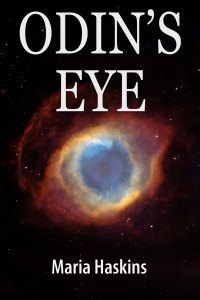 I just submitted my ebook Odin’s Eye to Amazon today, after wrangling with making a new version of the script for upload. The formatting is somewhat different than Smashwords rather stringent style-guide. (Smashwords converts your file into various different formats, while Amazon publishes in .mobi for Kindles and the Kindle App.) At least it was a fairly easy process once I got around to it, mainly because that stringent Smashwords style-guide helps you make a rather well-formatted document.
I just submitted my ebook Odin’s Eye to Amazon today, after wrangling with making a new version of the script for upload. The formatting is somewhat different than Smashwords rather stringent style-guide. (Smashwords converts your file into various different formats, while Amazon publishes in .mobi for Kindles and the Kindle App.) At least it was a fairly easy process once I got around to it, mainly because that stringent Smashwords style-guide helps you make a rather well-formatted document.
One wrinkle: Amazon’s auto spell-check found one (1) spelling error I had somehow managed to miss. I almost had a heart attack. Initially it showed four errors, but three were “intended” so that’s alright. The one error was the result of a last minute edit (of course) and corrected versions have now been uploaded everywhere and the book will still be available March 16th.
Right now, less than a week away from the publication of Odin’s Eye, nothing gives me the cold-sweats like thinking about spelling mistakes and grammar errors. I’m sure there are some in my script because that is just the nature of the beast, but the perfectionist part of me is seized with horror thinking about it.
I write in Word, mostly, but often have to turn off Word’s auto spell- and grammar-check because I don’t always write grammatically correct: especially when I’m writing dialogue. But even when I’m not writing dialogue, a well-chosen “error” is sometimes more expressive than the correct way of saying something.
Spell-check is often very useful, but not always, and the worst part is that it doesn’t always capture the times when you spelled something right, but used the wrong word. Even grammar-check can’t always save your from that!
Language, especially when you’re writing fiction or poetry, is not a clean, pristine thing that you can just hang on the wall and put on a pedestal and think of as perfect and complete. It’s often dirty, messy, ambiguous and ever-changing. That’s the attraction and the horror of it. The way a writer chooses to tell a story, the language we choose to use, the words we pick, even the way we write them or place them on the page, all of it is a wide-open world of possibilities.
There was a time when none of us had those little red lines on the screen to tell us something didn’t match the dictionary. There was a time when everyone wrote by hand, or typed things out on a typewriter. Was that better? Hardly. I need only remember the joys of Tipp-Ex, and ripping paper out of the typewriter and tossing it in the bin to know that. And yes, auto spell-check has saved my butt many times, as it did again today. Sure, it was only one error, but still: I was able to correct it ahead of publication.
One final thought: If you have an editor (I don’t have one currently) give them a hug of appreciation today: they’re worth it.

March 9, 2015
Thinking about “The Hobbit” this morning
J.R.R. Tolkien’s book The Hobbit has been on my mind the last few days, ever since I watched the final installment of Peter Jackson’s movie trilogy based on that book. I won’t post my full review/rant here, but you can read it on my Tumblr-blog.
The Hobbit is not my favourite Tolkien book. That would be The Lord of the Rings. But The Hobbit is special in many ways, if you’re a fan of Middle-earth. This was the book that set Tolkien on the path to eventually write The Lord of the Rings. It’s the first book he completed that made use of the vast world, the incredible lore, the many languages and the long world history he had created over the years, and turned it into a story that connected with children and adult readers alike. And it did all this by telling an epic tale through the eyes of a hobbit, someone who was not a traditional hero or immortal being, but a bit of a homebody who found his courage (and his treasure!) along the way. This is a key thing: The Lord of the Rings could have been told (as are many of the stories in The Silmarillion, for example) through the eyes of elves and heroic men, but it would never have been as popular as the story told through the eyes of Frodo, Sam, Pippin and Merry.
The fact that we experience all these grand adventures, and see all these amazing places through hobbit-eyes is what really makes both The Hobbit and The Lord of the Rings work so well. These hobbits bring it all down to a level where we can connect with and understand the reality of what it would be like to be caught up in such an amazing tale. In the midst of dealing with trolls, dragons, wizards, nazgul and orcish cruelty, they worry about handkerchiefs, clean clothes, having a bath, second breakfasts, and dream of sleeping in their own beds again. Losing track of this hobbit-perspective, means losing track of what made these stories classics in the first place, and in my opinion it also reduces the emotional connection and the emotional payoff that Tolkien conveys in his books.
These quotes from The Hobbit have especially stuck in my mind these last few days, and have made me wish the movie had stuck closer to Tolkien’s story.
About the fate of Kili and Fili: “Of the twelve companions of Thorin, ten remained. Fili and Kili had fallen defending him with shield and body, for he was their mother’s elder brother.”
About Beorn’s crucial contribution in the final battle: “But even with the eagles they were still outnumbered. In that last hour Beorn himself had appeared – no one knew how or from where. He came alone , and in bear’s shape; and he seemed to have grown almost to giant-size in his wrath.
The roar of his voice was like drums and guns; and he tossed wolves and goblins from his path like straws and feathers. He fell upon their rear, and broke like a clap of thunder on the ring. The dwarves were making a stand still about their lords upon a low rounded hill. Then Beorn stooped and lifted Thorin, who had fallen pierced with spears, and bore him out of the fray.
Swiftly he returned and his wrath was redoubled, so that nothing could withstand him, and no weapon seemed to bite upon him. He scattered the bodyguard, and pulled down Bolg himself and crushed him.”
Finally, three quotes about and by the Elvenking, Thranduil. Changing his personality and character for the movie was obviously done to create dramatic tension, but I wish more of book-Thranduil had been allowed to show through. These quotes from the book show what I mean:
“But the king, when he received the prayers of Bard, had pity, for he was the lord of a good and kindly people…”
“Bilbo Baggins!” he said. “You are more worthy to wear the armour of elf-princes than many that have looked more comely in it.”
“I will take your gift, O Bilbo the Magnificent!” said the king gravely. “And I name you elf-friend and blessed. May your shadow never grow less (or stealing would be too easy)!”

March 3, 2015
The powerful writing of Ursula K. Le Guin
The Earth is beautiful, and bright, and kindly, but that is not all. The Earth is also terrible, and dark, and cruel. The rabbit shrieks dying in the green meadows. The mountains clench their great hands full of hidden fire. There are sharks in the sea, and there is cruelty in men’s eyes. And where men worship these things and abase themselves before them, there evil breeds; there are places made in the world where darkness gathers, places given over wholly to the Ones whom we call Nameless, the ancient and holy Powers of the Earth before the Light, the powers of the dark, of ruin, of madness….
-Sparrowhawk/Ged to Arha/Tenar, in The Tombs of Atuan, by Ursula K. Le Guin.
Ursula K. Le Guin is one of my all-time favourite writers, and in many ways I think she (and Ray Bradbury) have influenced my own writing style more than any other writers I can think of (except perhaps J.R.R. Tolkien, who blew my mind when I first read The Lord of the Rings as a teen).
She has such a restrained and powerful way of writing: her stories are lean and trim without unnecessary chatter or extraneous explanations. Her prose is poetic and straightforward at the same time, and she is able to express so much with very little. The quote above from The Tombs of Atuan (part of the Earthsea cycle) is a prime example: Ged’s way of speaking is so evocative and expressive that it feels like a kind of magic in itself, and since he is a wizard that is just as it should be.
Reading her books, I often re-read passages several times just because the language is so sparse and beautiful – there’s a power in it that goes beyond the story itself.
Le Guin writes primarily fantasy and science fiction, and also what’s often called (dismissively by some) Young Adult literature, so she doesn’t always get the respect she so richly deserves. But if I were handing out Nobel prizes in literature, she would be at the top of my winner’s list.
Photo © 2012 Laura Anglin
Ursula K. Le Guin’s website.

February 27, 2015
Missing you, Leonard Nimoy
I don’t get tears in my eyes every time an actor or celebrity passes away, but when I read the news this morning that Leonard Nimoy had passed away, I felt an immense sadness. Not many actors become true icons, but Nimoy certainly was one.
I’d call myself a Trekkie, even though I came to this fandom in my 20s (Star Trek wasn’t shown on Swedish TV when I grew up), and in my case it was The Next Generation series that got me hooked. Truthfully, I always thought the original TV-show was far too cheesy, and contained too much William Shatner (sorry, Shatner-fans!) to appeal to me.
TNG was and is one of my all-time favourite TV-shows. It took about three seasons for that show to find its legs, but when it did, it was often spectacular. And my love for that show made me appreciate the original show and all the Star Trek movies a lot more. I loved it when Nimoy’s Spock appeared in TNG-episodes: he was an actor with great presence and a fantastic sense of understated humour that really appealed to me. In more recent years, when he appeared in the new rebooted Star Trek movies, he impressed me again and I thought he was used well to tie the various generations, timelines and “universes” together.
Whenever I would read or watch interviews with him, I was always impressed by how positive his outlook was on life, and how deeply grateful and appreciative he was of everything the crazy, whacky and wonderful Star Trek fandom had brought him over the years. He was just one of those people who came across as a truly good person: not in any angelic way, but as a person who always wanted to reach for, and share, something good, something helpful, something true with the world.
Nimoy was active on Twitter, and his last tweet was this:
LLAP / Live Long And Prosper was of course his catchphrase, and he signed off most tweets with that acronym. And yes, now I feel that sadness once again.
Finally, here’s a moment from Star Trek: The Next Generation, featuring Nimoy’s Spock and Brent Spiner’s Data.

February 21, 2015
A sharpened stake
I know I can definitely relate to this as a writer (especially right now when I’m counting down the days until “Odin’s Eye” is released as an ebook), and I think a lot of people can relate to this, whatever creative activity they’re involved in. It’s worth keeping in mind that not everyone will stab you in the heart. Like someone commented when I posted this on Facebook: “But then sometimes the other person just says, “wow, you’re a great writer!” (Thank you for that reminder, Tony!)
There are so many situations in life when the fear of failure and rejection can be so crippling that you end up doing nothing. And that is also frightening.

February 17, 2015
6 of my favourite rock and roll books
Sharing some book-tips today from music blog: 6 of my favourite books about rock and roll.
 Originally posted on Rock And Roll:
Originally posted on Rock And Roll:
Life, by Keith Richards
Keith Richards’ Life is a book that is just as endlessly quotable as its author is off the page. It’s an amazing read, with the longest and strongest part of the book dealing with Richards’ childhood in war/post-war Britain – marked by poverty and bomb sirens – and the early years with the Rolling Stones. Richards’ stories about touring, drugs, partying, his passion for music and his love of guitars, and his memories of how the Stones started out are rich in detail, hugely entertaining, and full of insight.
The man is also brutally (some might say cruelly) honest when he shares his point of view of the past, people he’s met along the way, and which musicians he respects and does not respect. I definitely gained a new understanding of his on/off relationship with Jagger from this book – there’s a lot more love in that love/hate relationship…
View original 1,047 more words

February 16, 2015
Q&A with me, about the cover and title of ODIN’S EYE
If you want to find out more about the image on the cover of Odin’s Eye, and why I chose that particular title for my book, you can check out this Q&A video at YouTube.

February 12, 2015
Throwback Thursday: some old-school Ray Bradbury love
I make no secret of my love for Ray Bradbury’s writing, and I’ve been in love with his books for a very long time. I Sing The Body Electric, The Illustrated Man, The Machineries of Joy, and The Martian Chronicles were all available on my parents’ bookshelves, and I fell hook, line and sinker for Bradbury’s mix of horror, science fiction, and poetic prose. I remain a fan to this day.
In high school, we were given an assignment to write about an author we liked, and I ended up writing about Ray Bradbury. Here’s that assignment – in Swedish (of course) – done in that old-school style that seems so dated it’s almost quaint by today’s word-processing standards!
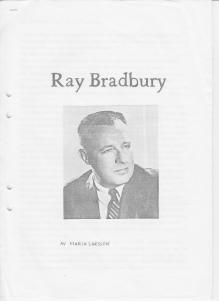
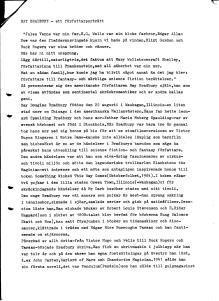
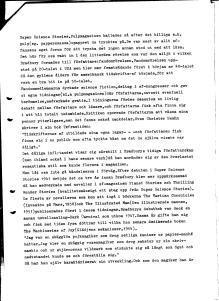
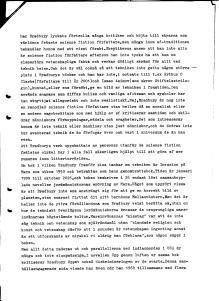
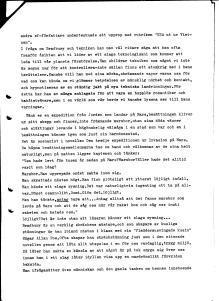
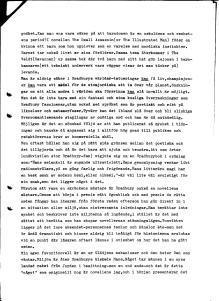
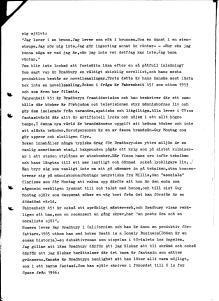
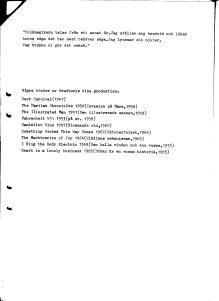

February 8, 2015
A book trailer? Why not!
Because Movie Maker is just way too much fun to play around with, I ended up putting together a trailer for Odin’s Eye.



